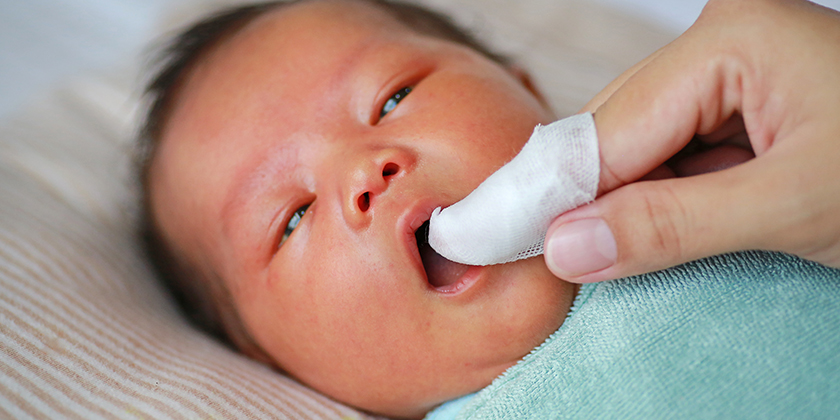Many parents don’t pay a lot of attention to infant oral care, not least because infants often have no teeth until they cross the six-month age milestone. Even though there is not much to worry about when it comes to oral care at that age, it is still a good idea to get into the habit of cleaning the baby’s gum from the day they are born. This sets a precedent for future oral care procedures and more importantly, the child gets used to having his or her teeth cleaned. Here are some of the oral health issues that Infants are likely to face.
Teething
Teething is a natural process where the first set of teeth begin to emerge from the baby’s gums. Teething causes a child to be restless, irritable and often leads to loss of appetite. You can help a child overcome most of these problems by gently rubbing the infant’s gums with a clean finger or a wet gauze pad. You should also consider giving your child a teething ring to chew on. Remember to keep the teething ring clean and free of any contaminants.
Baby-Bottle Tooth Decay
This is a condition that is brought about by the intake of sugary liquids by the child. The condition can cause serious damage to the teeth of a child.
Pacifier-related Problems
Extended use of pacifiers can cause jaw problems in a child. This can lead to a child developing bite problems. When buying a pacifier for your infant, give preference to pacifiers that come as one piece rather than several pieces to reduce the possibility of choking. You should also only buy pacifiers that are big enough to make it impossible for the child to swallow it. Finally, never dip the pacifier in honey or any sugary substance as this will increase the risk of developing cavities and tooth decay.
Cleaning Your Infant’s Gums
Cleaning your infant’s gums and teeth is not a difficult process. You start by placing the infant on your lap with his or her head against your chest. This gives you a clear view of your child’s mouth. Using a clean and moist cloth, rub the child’s lower and upper gums. You can also opt to use terrycloth finger cots which fit snugly on your finger and are designed precisely for this task. You should do this at least twice every day, preferably after breakfast and after the last feeding at the end of the day.
When the infant develops his or her first set of teeth, you can switch to using a soft-bristle brush and water to clean his or her teeth. Avoid using any kind of toothpaste until your child is at least two years old. Even when your two-year-old child is able to brush his or her teeth without your assistance, it is important to supervise the process. This is to ensure that brushing is done for an adequate time period but also to make sure that the child does not swallow any toothpaste.
Dentists recommend taking your infant for a dental exam after he or she turns one year old. If you are looking for a highly experienced dentist to care for your infant’s teeth, look no further than Dr. Alex Rubinov of New York City. Dr. Rubinov is a highly experienced dental practitioner whose practice offers a wide range of dental services. Contact us at (718) 253-0800 for an appointment.


